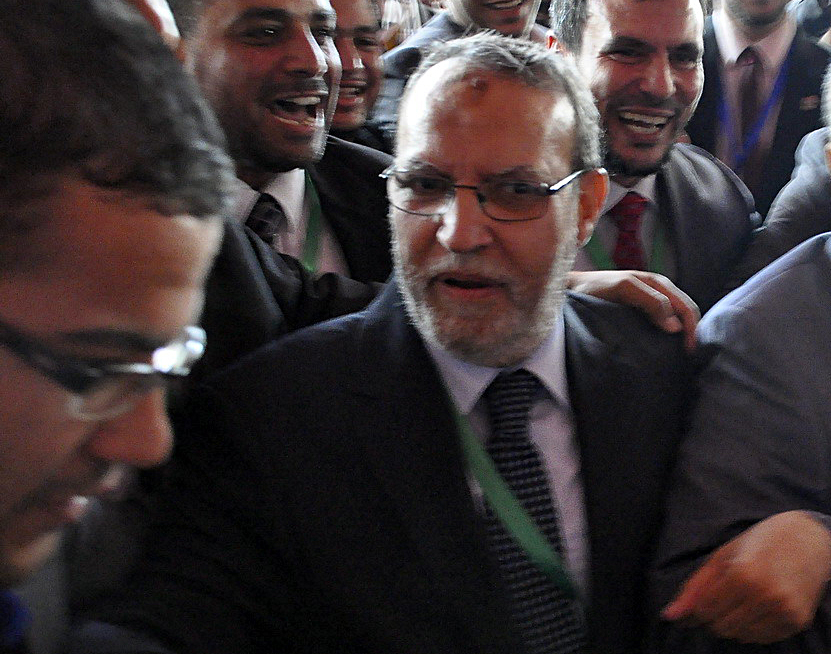CAIRO: Egypt s plans to build nuclear plants led experts to believe it s stepping up its regional role.
President Hosni Mubarak announced last week that Egypt planned to construct a series of nuclear power plants, relaunching a program shelved 20 years ago following the Chernobyl disaster.
Egypt s move follows similar announcements by other Arab nations including the oil-rich Gulf states and former international pariah state Libya – despite growing tensions between Iran and the West over its own nuclear program.
There is an internal political dimension to the decision by Mubarak, who is telling Iran that they will not allow Tehran to be the sole regional power to control the atom, said Antoine Basbous, director of the Arab World Observatory based in Paris.
Cairo s announcement that it would seek nuclear capabilities to ensure its future energy security while ruling out any military ambitions, received the immediate backing of Iran s arch-foe Washington.
It is a right for all Arabs, Mubarak thundered at the Arab summit in Riyadh in March, sparking talk it was time for an Arab nuclear family.
Among those seeking nuclear power are Algeria, Jordan, Libya, the six members of the Gulf Cooperation Council (GCC) including Opec powerhouse Saudi Arabia, and Yemen.
GCC heads of state are due to report on the feasibility of a regional nuclear program at their annual summit in Qatar in December.
Last week, the specialist Middle East Economic Digest reported that the GCC had proposed to Iran the creation of a multinational consortium to provide enriched uranium to the Islamic republic as a way of resolving the standoff.
No Arab countries currently feature on the International Atomic Energy Agency s (IAEA) list of the 31 countries with a nuclear capability, which together have 435 working power stations and 29 under construction.
The United States has 103 nuclear power stations, followed by France with 59, Japan with 55 and Russia with 31 fully operational facilities and seven being built.
Asia is also investing heavily in atomic energy and experts argue that should an alliance develop between Egypt and China – and possibly including Russia – this could weaken Washington s ties to Cairo, its traditional ally.
While Egypt, the most populous country in the Arab world with 76 million people, and energy-poor Jordan could justify the switch to nuclear energy, the choice is more difficult for the Gulf countries, sitting on huge oil and gas reserves.
It is Iran s desire to accelerate its suspect nuclear program that has encouraged its Arab neighbors to push forward and pursue a nuclear course, said Basbous.
Egypt and Saudi Arabia, which vie for leadership of the largely Sunni Muslim Arab world, have never hidden their concerns over the nuclear ambitions of Iran – a Shia power – and its influence in Iraq.
Iran has been slapped with two sets of UN sanctions for failing to halt uranium enrichment, a process the West fears could be diverted to making a nuclear bomb.
The claims are vehemently denied by Tehran which insists it has a right to atomic technology as a signatory to the Non-Proliferation Treaty (NPT).
But IAEA head Mohamed El-Baradei said late last month that he had no evidence Iran was engaged in a concrete active nuclear weapons program.
Egypt, which is a signatory to the NPT, officially supports the scrapping of atomic weapons in the region and regularly criticizes Israel for its nuclear policy.
The Jewish state, which has never admitted possessing nuclear weapons, has some 200 warheads, according to experts, and is the only Middle East country to have refused to sign the NPT.
In September, Israeli warplanes hit a site in Syria that press reports said was a nuclear facility under construction with North Korean help, although this was vehemently denied by Damascus and Pyongyang.
Libya itself abandoned a secret atomic program in 2003 just as it claimed to be on the point of producing a nuclear bomb, according to Tripoli s leader Muammar Qaddafi, but France is now helping to build nuclear facilities there.
The big problem is that you can tip over from civil to military uses once you have learned how to control the atom, said Basbous, so the risk of proliferation makes it truly essential to have an international watchdog. Agence France-Presse


